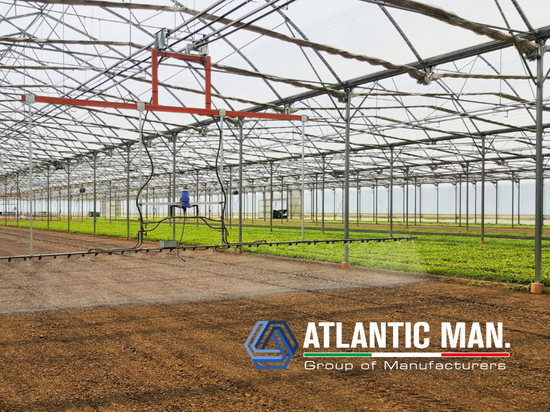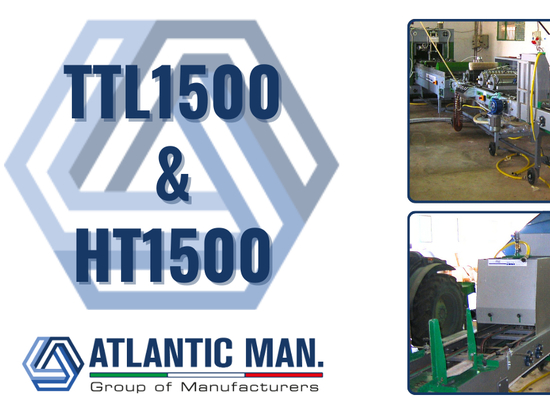
#Industry News
Greenhouse irrigation: better high-density or low-density polyethylene hoses?
In the warmest months of the year, irrigation booms that mount low-density hoses require more maintenance.
With the arrival of summer, high temperatures can pose challenges to the management of protected crops in greenhouses and nurseries. Specifically, the polyethylene hoses, through which water and fertigation solutions flow and which are installed on mobile wings of irrigation, may be affected by thermal changes.
Polyethylene, while a commonly used material in irrigation systems, has varying thermal expansion coefficients depending on its density. When the density of polyethylene is low and temperatures rise, the hose tends to expand excessively, leading to more frequent maintenance. In contrast, high-density polyethylene experiences less significant changes in thermal expansion with rising temperatures, reducing the likelihood of stretching and ensuring more reliable system performance.
Most irrigation systems on the market use low-density polyethylene hoses because of their greater lightness and flexibility. However, high-density hoses, made from top-quality virgin material, offer superior resistance to traction and stretching.
So, which system should you choose to ensure effective irrigation for crops in greenhouses and nurseries while minimizing maintenance? A useful criterion is to evaluate the greenhouse configuration.
Short Greenhouses
In short greenhouses, it is usually sufficient to install irrigation booms with lower-density hoses, such as our “HO” double rail irrigation wing. This solution is not only less likely to encounter stretching issues but also represents the simplest and most cost-effective option for these types of structures.
Long Greenhouses
In longer greenhouses with extended distances between steps, high-density hoses, like those used in our “V5” double rail irrigation boom, perform much better. Due to their lower elongation coefficients, these hoses are more resistant to traction and thermal shocks.






